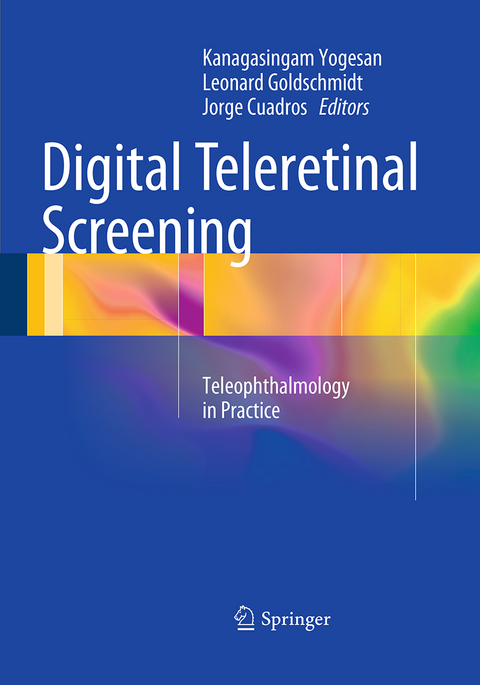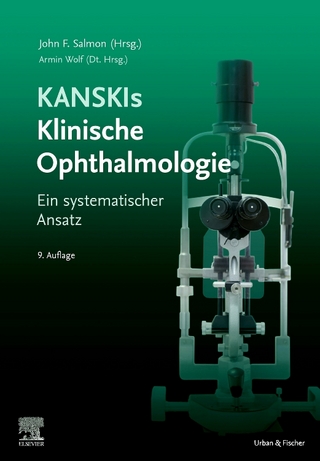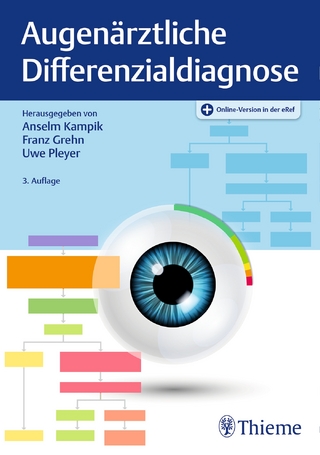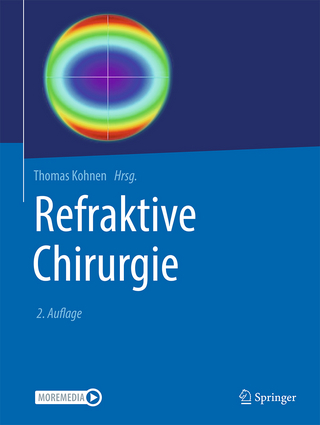
Digital Teleretinal Screening
Springer Berlin (Verlag)
978-3-662-50555-7 (ISBN)
Digital retinal imaging performed by primary care providers and nurses, followed by remote image interpretation (teleretinal imaging), is rapidly acquiring a crucial role in many parts of the world as it permits the detection of major diseases, such as diabetic retinopathy and glaucoma, in patients who would otherwise be beyond the reach of a trained ophthalmologist. In this book, experts from around the world describe how digital teleretinal screening can be set up and optimally utilized. Technical issues are discussed, and the appropriate use of screening for different diseases and in different age groups is explained. The major part of the book draws upon the clinical experience of leading practitioners in a wide range of teleretinal applications. The result is a comprehensive source of high-quality information for clinicians and other health professionals who are involved in eye care delivery, so that they can assess how teleretinal screening might be applied to their working practice.
Professor Yogesan is the Research Director of the Australian e-Health Research Centre and a Senior Research Fellow of the National Health and Medical Research Council in Australia. He has worked at Stanford University Eye Institute as a Senior Fulbright Scholar in 2011. He is the President of the Australasian Telehealth Society and a Board of Directors of the International Society for Telemedicine and E-Health. He has obtained many awards including one of the Inventors of the year awards in 2006 and 2008 (for Eye Scan device and i-Test). He was selected as WA's top medical and health researcher in 2002, nominated for citizen of the year in 2007 and Local champion of 2007 in Perth. He has published over 85 peer-reviewed research papers and books in the field, including the first text book on Teleophthalmology (with Springer). He has strong record in translation of research findings into clinical practice and holds patent portfolio of more than 30 applications in the field. Professor Goldschmidt is a leading ophthalmologist and a pioneer in the field of medical informatics in USA. He is the Medical Director at the US Department of Veterans Affairs (VA) in Palo Alto, CA. He is also a clinical professor in ophthalmology at the Stanford School of Medicine. Professor Goldschmidt is the Director for the world famous national teleretinal screening program at VA. He is a pioneer in introducing telemedicine and an electronic patient record system at the VA, which is the largest system successfully functioning in the US with 6 million patient’s records. His work is becoming increasingly recognized at the forefront in this developing field internationally. Professor Cuadros is an optometrist from the School of Optometry at the University of California, Berkeley. He is the pioneer in introducing eye screening program in California especially in the underserved communities. He himself reads retinal photos for diabetic retinopathy. He has established screening standards and trains screeners for diabetic retinopathy. He is rolling out many remote screening centers in central California in collaboration with the California Healthcare Foundation.
The Current State of the Art and Future Trends: A Literature Review of Tele-ophthalmology Projects from Around the Globe.- Diabetic retinopathy screening practice guides.- Stereopsis and Teleophthalmology.- Video Imaging Technology: A Novel Method for Diabetic Retinopathy Screening.- Automated Image Analysis and Application of Diagnostic algorithms in an ocular telehealth network.- Computer aided detection of diabetic retinopathy progression.- Tele-glaucoma: Experiences and Perspectives.- Retinal Vascular imaging for cardiovascular risk-prediction.- Retinal Screening for Early Detection of Alzheimer's disease.- Screening the Retina for heart disease / Stroke. The Telemedicine Applications and Global Experience: Tele-retinal imaging in Adults: Diabetic Retinopathy Assessment in the Primary care environment: Lessons learned from 100,000 patient encounters.- The systematic DR screening in England for 2 million people with diabetes.- Telescreening for diabetic retinopathy in India.- First experience with tele-ophthalmology in rural Nepal.- Economics of Screening for diabetic retinopathy using telemedicine in California's Safety Net.- Diabetic Retinopathy Screening with Non-Mydriatic Retinopathy by General practitioners.Paediatric applications: Telemedicine for Retinopathy of prematurity diagnosis.- Retinal examination in premature babies.- Retinoblastoma Management: Connecting Institutions with Telemedicine.- Conclusion.- Appendix: American Telemedicine Association's Telehealth Practice Recommendations for Diabetic Retinopathy.
| Erscheinungsdatum | 19.08.2017 |
|---|---|
| Zusatzinfo | X, 231 p. |
| Verlagsort | Berlin |
| Sprache | englisch |
| Maße | 178 x 254 mm |
| Gewicht | 470 g |
| Themenwelt | Medizin / Pharmazie ► Gesundheitswesen |
| Medizin / Pharmazie ► Medizinische Fachgebiete ► Augenheilkunde | |
| Medizin / Pharmazie ► Studium | |
| Technik | |
| Schlagworte | Diabetic retinopathy • Eye Screening • glaucoma • retina • Teleophthalmology |
| ISBN-10 | 3-662-50555-X / 366250555X |
| ISBN-13 | 978-3-662-50555-7 / 9783662505557 |
| Zustand | Neuware |
| Haben Sie eine Frage zum Produkt? |
aus dem Bereich


